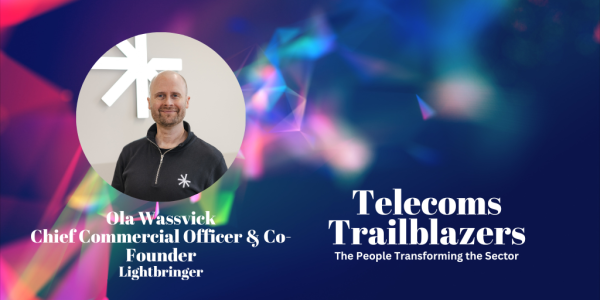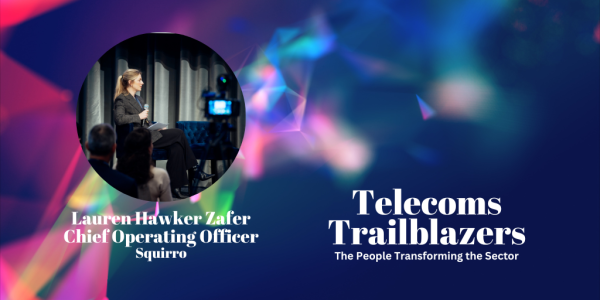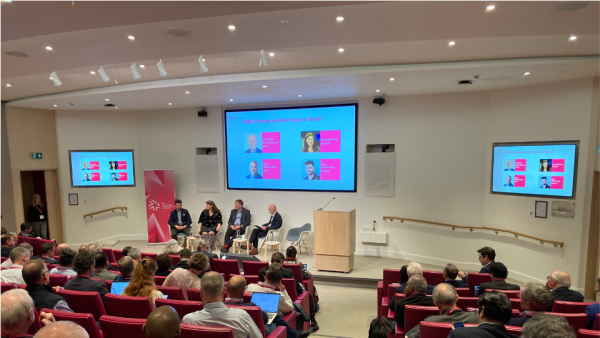
A series of Future Capability Papers, authored by the UKTIN Expert Working Groups, are being published over the coming months.
UKTIN spoke to Tom Bennett, Chair of the UKTIN Network Management Expert Working Group to learn more about the group’s paper, which has been published today.
Please talk us through the process of creating the paper.
Fundamentally, network management has always been about ensuring our customers receive the service they are paying us for. For me, it’s about the trust our customers place in us, as an industry, and ensuring we keep our promises to them. So the commercialisation of all these new technologies and how they’re assured to the end customer is key. It seemed natural in that case to start with the end customer in mind and then work backwards from there.
When pulling together the expert working group therefore I wanted it to be cross-industry to provide different perspectives – so I invited representatives from telecoms, academia, technology firms and customer segments, such as the NHS. The process involved learning each other’s language which was great, and we had some productive workshops.
What became clear early on was the pride everyone in the team felt in contributing to this paper. The group enjoyed the opportunity to talk about the issues as they saw them and there was a huge sense of alignment about industry challenges and opportunities for the future. Understanding those commonalities and priorities across the team really drove the momentum in what we were going to add into the paper, and how we were going to structure the effort.
What is the one thing you’d like people to know about the report?
Everybody in the working group believes that the future of many industries is linked to the success of telecoms.
Members of the group either come from or have worked extensively with different sectors and industries, such as railways or the energy sector. And a lot of the digital modernisation in these industries is predicated upon a strong telecoms foundation.
We all believe in the future of telecoms but except for a few dedicated purpose-built enterprise networks, the majority of networks today have been built on a consumer approach. We need to transform telecoms networks from the consumer service availability of approximately 99.5% to a network availability that critical industries can have faith in.
What surprised you most while preparing this report?
I was surprised by the commonalities we found, given that we came from different industries and specialisms. There was a real spirit of collaboration which was a delight, everyone enjoyed working together and learning from each other.
What conclusions were you able to draw from the paper?
There are a few. First, we believe there is a need for a clear long-term vision for UK Plc that considers the critical role of telecommunications in the UK economy and acknowledges that it necessitates investment.
This led us to another recommendation. There is a clear view of the so-called ‘age cliff edge’ in telecoms. The majority of those working in radio are between 50 – 60 years old. So there’s a skills gap that must be addressed to be able to carry out this work. This will require a significant investment in people in the UK – and my group believes government facilitation is key.
Next, was addressing how we influence the development of telecoms and assure the networks, through network management, while keeping in mind what parallel industries expect and need. This isn’t just about talking to other industries, but creating a concrete set of requirements that, as a telecoms industry, we can start to develop against.
There was also a particular recommendation about the interplay between mobile network operators, industry, neutral hosts, security companies and so on. You are not going to have never-ending bilateral agreements. There needs to be a way of exchanging data in a structured way.
Overall, we need to move from a reactive network management approach to a proactive one – fixing things before they fail. And we’re going to need tools and technologies like AI to help with this shift.
Are there any themes picked up in this paper that we can expect to see continued or explored in the other EWG papers?
We expect AI to facilitate network management in the future. Each workstream needs to understand the other and work together because with any change, whether it be from AI, data, or wireless technologies, I need to know how to manage it.
A theme we’ll need to continue to explore across all the expert working groups is that through the connectivity layers, we will need to be able to assure a service, manage it and guarantee security.









